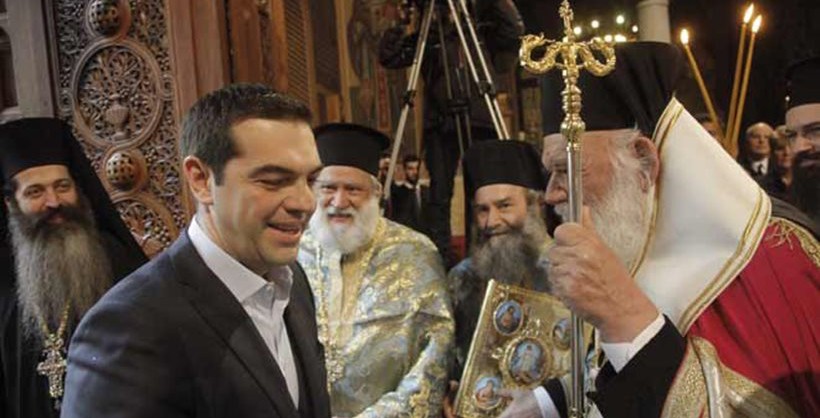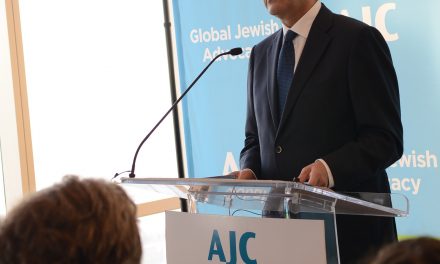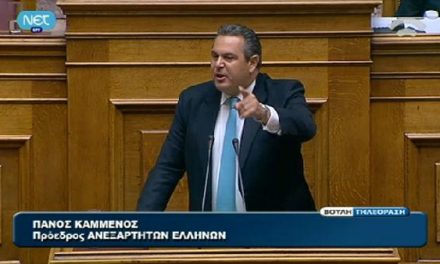The head-on confrontation with the church comes at a high political price, mentions the article
The Economist published an article commenting on the relationship of the Greek government with the Church and saying that Prime Minister Alexis Tsipras and Education Minister Nikos Filis have softened their view on secularism.
According to the article, this attitude shift arose from the awareness of the political cost that a clash between state and Church might bring.
“Alexis Tsipras, is a declared atheist; his long-term aim is to unravel the close relationship between the Greek state and the Orthodox church, whose role as the country’s prevailing religion is enshrined by many articles in the constitution. On re-election last month, he named as education minister a secularist politician, Nikos Filis, who had protested over the warm official reception given earlier this year to a casket of saintly relics which were loaned to Greece by the Catholic church in Venice. Soon after the new cabinet’s formation, the deputy education minister declared that the procedure for opting out of religion classes would be made much simpler. People braced themselves for a good old-fashioned clash between state and ecclesiastical authority,” says the article.
However, as the journalist emphasizes, only days later “the spirit of confrontation was exorcised”.
“Mr Filis had an emollient meeting with the archbishop of Athens, Ieronymos, at which he promised the prelate that no unilateral actions would be taken. Greek journalists were told in briefings that the government appreciated the church’s humanitarian work to relieve poverty, and it hoped for amicable state-church cooperation over the use of church property for public benefit. They were also assured that the nature of religious education had altered already, and would change more, towards general religious knowledge and away from devotional instruction. But the change would happen in liaison with the church. This weekend, Mr Filis made a new demonstration of friendship with the church by attending the enthronement of a bishop”.
But what lies behind all this, the journalist wanders.
“It’s not surprising that a government minister wanted to simplify the opt-out. In what seemed like a sop to devout voters, dodging religion courses was actually made harder by a regulation introduced in January during the final days of Greece’s previous government”.
But the reactions did not come as a surprise, says the article, since for many Greeks to state openly that you are not an Orthodox Christian is almost like saying that you are not Greek.
“Perhaps none of that should be a surprise,” concludes The Economist.
“One of the realities facing any prime minister of Greece, regardless of ideology, is that head-on confrontation with the church comes at a high political price. Too high a price, apparently, for Mr Tsipras, who has plenty of other things to worry about: not just an ongoing economic crisis, but rumbling geopolitical tension in the region, a state of affairs which has often prompted the Greeks to rally round their religion.”



















